Documents Toward Freedom
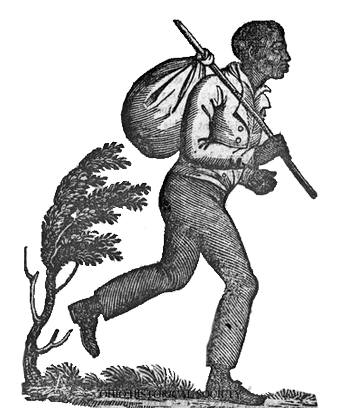
Many slaves continued into Canada because many northern states passed laws prohibiting blacks from entering their states. Slavery was a divisive issue, dividing white friends, families and business associates. States had passed laws that denied blacks citizenship, the right to vote, and the right to sit on juries, such as Pennsylvania's State Constitution of 1838. The Fugitive Slave Act of 1850 saw a slave as property, and therefore must be returned. Anti-abolitionists were in frequent conflict with antislavery supporters, or abolitionists.

An estimated 100,000 people escaped enslavement via the Underground Railroad between 1810 and 1850. However, when Northern towns refused compensation and welcomed freed slaves, Southern Secession was strengthened. Secessionists viewed runaway slaves as stolen property.
Southern states moved toward leaving the Union. Sectional tensions increased as western territories were admitted to the Union, becoming states, and the issue of slavery was hotly debated. Key points were the Dread Scott Decision in 1857; the "Bleeding Kansas" crisis; and then John Brown's Raid on Harpers Ferry in 1859. Abraham Lincoln's election in 1860 became the tipping point!
Gradual Abolition Act
The Gradual Abolition Act of 1780, passed in Pennsylvania, became the first law in America to abolish slavery (below).
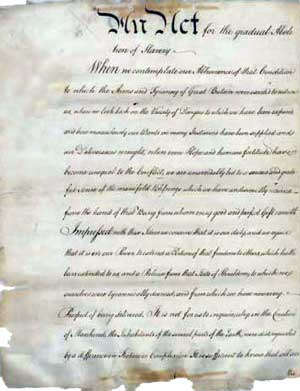 |
SECT. 3. Be it enacted, and it is hereby enacted, by the representatives of the freeman of the commonwealth of Pennsylvania, in general assembly met, and by the authority of the same, That all persons, as well Negroes and Mulattoes as others, who shall be born within this state from and after the passing of this act, shall not be deemed and considered as servants for life, or slaves; and that all servitude for life, or slavery of children, in consequence of the slavery of their mothers, in the case of all children born within this state, from and after the passing of this act as aforesaid, shall be, and hereby is utterly taken away, extinguished and for ever abolished. |
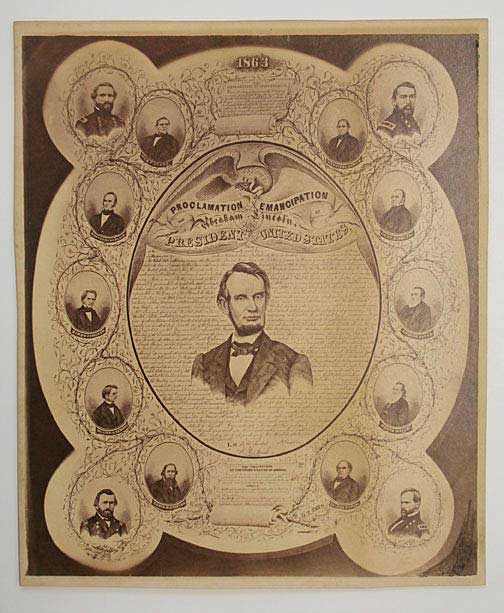
Emancipation Proclamation
"...All persons held as slaves within any state...in rebellion against the United States shall be then thenceforward, and forever free..."
Abraham Lincoln, Emancipation Proclamation
President Lincoln issued the Emancipation Proclamation as an executive order, on January 1, 1863. The Emancipation Proclamation gave freedom, not citizenship, to
slaves living in the ten rebellious southern states. They
could then enlist and serve in the Union Army. In all, about 200,000 free
blacks served in the Union Army. The glorified version of the Emancipation Proclamation above shows Lincoln surrounded by his generals and cabinet.
Click here to read the transcript of the Emancipation Proclamation.
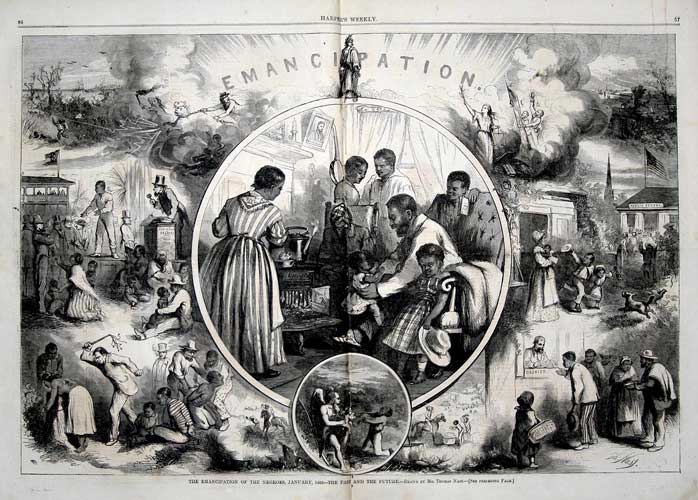
Scenes of the harsh life of slaves
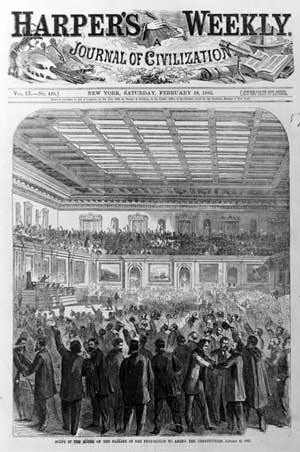
The 13th Amendment
The 13th Amendment to the Constitution, which was passed in
1865, outlawed slavery everywhere in the United States. Passage of the amendment was part of Abraham Lincoln's re-election platform. The amendment, which overturned the Dred Scott decision, was sent to individual states for ratification before the end of the war. The 13th Amendment narrowly passed the
House on January 31st and signed into law by Lincoln. The surrender at
Appomattox followed on April 9th. And then, on April 15th, Lincoln was
assassinated. The amendment was ratified on December 6, 1865.
The 14th Amendment
The 14th amendment granted citizenship to “all persons born
or naturalized in the United States,” which included
former slaves recently freed. It was ratified July 9, 1868.
The 15th Amendment
African American men were granted the right to vote with the 15th Amendment to the Constitution; it was ratified February 3, 1870. Their right would not be fully realized though because of poll taxes and literacy tests. Only with the Voting Rights Act of 1965, a century later, would this many African Americans be registered to vote.
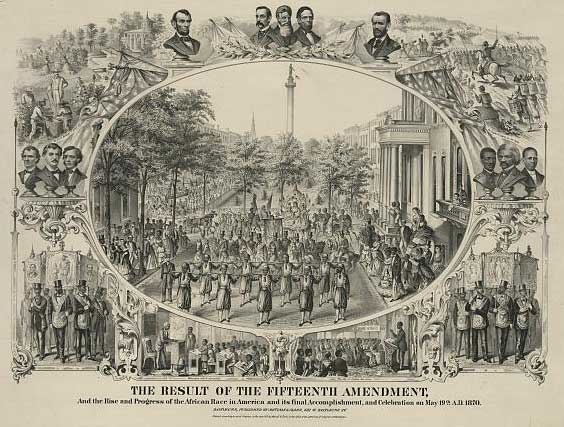
Return to the top of Documents Toward Freedom, or follow the links below...
Share this site with your friends and associates using this link!



